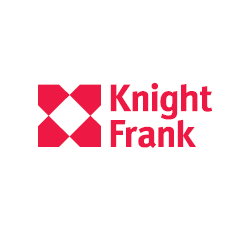Knight Frank’s latest Hong Kong Monthly Report highlights varied property market performance. The Hong Kong office market faces challenges with high vacancy rates, though demand for high-quality spaces is increasing. In Kowloon, oversupply is leading to subdued activity and a projected mild rental decline in 2025.

After a five-month decline, Hong Kong residential home prices rose in November. Leasing demand remains robust, fuelled by talent schemes and high-income groups. Total retail sales in Hong Kong are expected to decline by 5% YoY in 2024 due to changing consumption patterns and spending habits of Mainland tourists and local travel trends, although retail leasing is rising in core districts.
Grade A Office
Hong Kong Island
As we approach the end of 2024, the Hong Kong office market remains challenging, with a high vacancy rate of 13.1% on Hong Kong Island.
While the Hong Kong office market faces ongoing challenges, there has been modest growth in demand for office space in Hong Kong. Despite the overall challenges, leasing activity has shown some positive momentum, particularly at the newly built office with the provision of high-quality amenities. The banking and finance sectors have been prominent contributors to this trend.
While the market remains tenant-friendly, landlords have opportunities to attract tenants by offering modern amenities and strong ESG credentials.
Looking ahead, pressure on office rentals is expected to continue, especially with an anticipated influx of 4 million sq ft of new office space between 2025 and 2026. While these new buildings may attract businesses seeking to upgrade or relocate, integrating this additional space will take time. Overall, we forecast a decline in Grade A office rentals on Hong Kong Island from 0% to 3% in 2025.
Kowloon
In November 2024, the Kowloon office market remained notably quiet. Despite a slowdown in new office completions, the market continued to grapple with an oversupply from previous years. This ongoing imbalance has kept rental rates under pressure and vacancy levels high.
Tenant activity was subdued, with a 20% MoM drop in letting transactions and only two notable leases over 10,000 sq ft recorded.
Given the market uncertainties, Kowloon office tenants are actively seeking rent reductions and resizing their spaces during renewals. They are also rigorously evaluating the cost-performance value of offices when considering relocations. In response, landlords are adjusting their asking rents, increasing agency fees, and offering various incentives to maintain competitive. The outlook for the Kowloon office market in 2025 remains challenging, with overall office rents projected to decline by 2% to 4%.
Residential
Hong Kong home prices ended a five-month decline, with a 0.6% MoM increase in November, bringing the year-to-date decline to 6.8%.
The first-hand market thrived, driven primarily by mainland Chinese buyers pursuing long-term leasing investment strategies. Luxury homes experienced increased activity.
In the leasing market, home rents have retreated by 0.3%, marking their first decline since February. Some foreign professionals are planning to return to Hong Kong, seeking well-decorated flats with monthly rents between HK$70,000 and HK$120,000, making areas like Wong Chuk Hang and Tseung Kwan O appeared to be more sought after than before among expatriates. The leasing market is expected to remain strong, supported by demand from talent schemes and the high-income groups, with mass residential rents projected to rise by 3-5%.
Looking ahead, developers are likely to expedite unsold inventory and launch new projects, potentially boosting market activity and leading to a 5% rise in home prices, with transactions expected to reach 55,000-58,000 units in 2025.
Retail
Total retail sales in the first ten months of 2024 are estimated to have declined by 7.1% compared to the same period last year. Projections suggest that total retail sales for the year may decrease by 5% YoY, which intensifies pressure on retail rents and price adjustments.
With the holiday season approaching, many locals are opting to travel, contributing to lower retail sales as the year draws to a close.
In 2024, retail leasing transactions in core districts are gradually increasing, particularly among Chinese food and beverage franchises, as well as medicine and cosmetics retailers.
The retail shop investment market is expected to become more vibrant with potential rate cuts and easing mortgage rules. Current deals predominantly involve distressed properties and shops yielding over 6%. The transformation of the retail landscape is increasingly unavoidable, driven by changing consumption patterns and spending habits of Mainland tourists. Coupled with an aging population and shifts in labour dynamics, the retail sector must adapt to this evolving business environment. While traditional retail practices encounter challenges, new opportunities are emerging for alternative players, including community services, health and wellness, sports entertainment, arts and culture, and various NGOs.
Download the report here.












